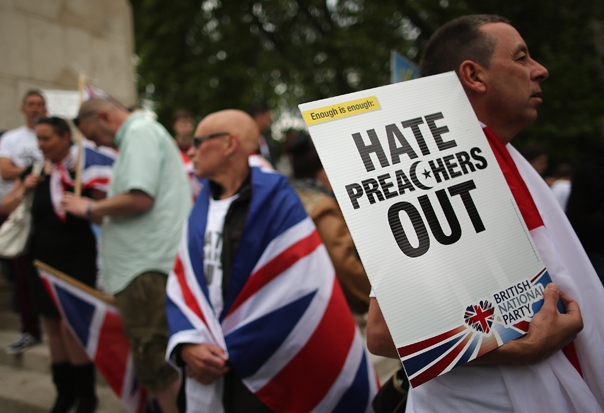British public opinion has never really turned against Muslims. According to Pew’s 2014 Global Attitudes survey, 26 per cent of us have ‘unfavourable’ attitudes towards Muslims in this country; compare that to 46 per cent in Spain, 53 per cent in Greece and 63 per cent in Italy.
Our national tolerance has, so far, proved robust. Even after the 7/7 London bombings, favourable attitudes towards Muslims in Britain dipped by only a couple of points. But is it strong enough to survive the horrors of Isis and Rotherham coming to light simultaneously?
It feels as if we are on the verge of an anti-Muslim backlash that could spread beyond the strongholds of the aggrieved white working class in Barking and Rochdale and into the home counties.
Last weekend a group of British imams issued a fatwa forbidding Muslims from volunteering for Isis. Their ruling — which is unlikely to have the slightest effect on young militants — may reflect spontaneous disgust at the actions of the so-called Islamic State. But there is an additional flavour of panic.
In the past, Muslim community leaders have condemned Islamist terrorism in language clouded by the rhetoric of minority grievance. Anyone who presses them on the topic has been drowned out by the ululations of Yasmin Alibhai-Brown. This anti-Isis fatwa is different. It says that Muslims giving humanitarian aid to Syrians or Iraqis must do so ‘without betraying their own societies’.
The change of tone speaks volumes. The 2005 bombings and the murder of Lee Rigby last year could not plausibly be blamed on whole communities. In contrast, the departure of hundreds of young Muslims to fight for Isis raises questions about community loyalty. The imams have accused the jihadis of ‘betraying’ Britain because they don’t want the accusation flung back at them.









Comments
Join the debate for just £1 a month
Be part of the conversation with other Spectator readers by getting your first three months for £3.
UNLOCK ACCESS Just £1 a monthAlready a subscriber? Log in